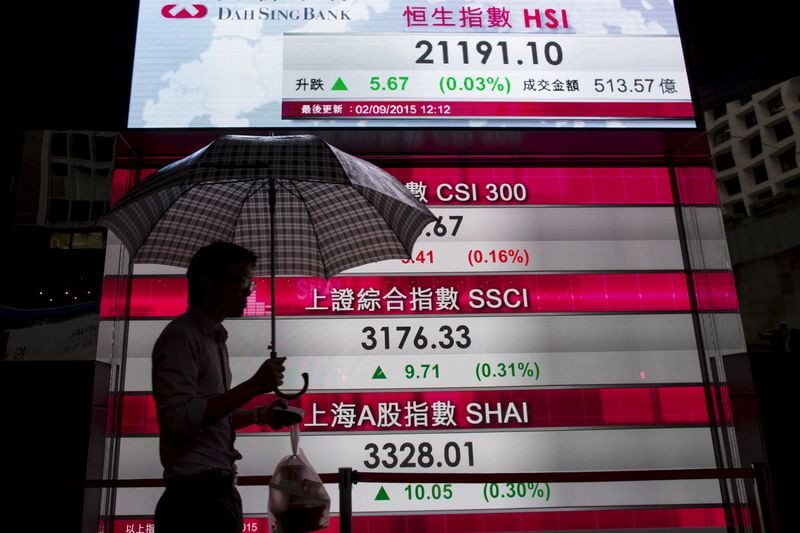On Wednesday, February 26, 2025, most stock markets in Asia ended the day in the red. The main factors for the decline were economic concerns triggered by recent threats from U.S. President Donald Trump to impose new trade tariffs. Investors are also worried about signs of slowing economic growth in the U.S., which heightens concerns about the global economy.
Trump noted that additional tariffs on copper could be imposed in early March, as well as announcing 25% tariffs on goods from Canada and Mexico. These threats have significantly worsened market sentiment, especially among risky assets. As a result, stock indices in Australia, Japan, South Korea, and other countries in the region showed a decline. Investors are cautious ahead of the next economic reports and U.S. actions, which further intensifies pessimism in the stock markets.
Growth in Hong Kong: Tech Sector on the Rise
Unlike most Asian markets, Hong Kong was an exception. The Hang Seng index, which already showed strong growth last month, continued to move upward due to renewed interest in shares of major Chinese tech companies. In particular, giants like Baidu, Alibaba, and Tencent were once again in the spotlight of investors seeking to invest in potential growth leaders in the field of artificial intelligence.
Optimism about the development of artificial intelligence in China continues to support activity in Hong Kong's tech sector. Despite a slight correction in recent sessions, analysts remain confident in the long-term prospects of Chinese tech companies, especially in light of improving corporate earnings and AI development.
New Surge of Interest in Chinese Stocks: Investors Bet on AI
Hong Kong and Chinese markets received additional positive signals from the growth of shares of major tech companies, which also impacted the broader Chinese market. The CSI 300 and Shanghai Composite indices showed growth, confirming the ongoing trend in a positive direction.
Moreover, investors have taken note of the growing interest in semiconductor companies as one of the main components for AI development. These companies have become an important growth driver in Chinese markets, ensuring further positive dynamics on the stock exchanges of China and Hong Kong.
Investment in the Tech Sector Remains Under Pressure in Other Asian Countries
However, not all Asian tech markets are showing growth. In Japan and South Korea, shares in the tech sector are declining. For example, Japan's Nikkei 225 index lost 0.5%, and South Korea's KOSPI decreased by 0.1%. This is especially true for companies operating in the U.S., such as Nvidia. Amid profit-taking, Nvidia shares showed a three-day decline.
Shares of TSMC (a semiconductor supplier for Nvidia) fell by 0.5%, and Foxconn (Hon Hai Precision Industry) decreased by 0.3%. Asian markets oriented towards high technology remain under pressure as investors await the release of key earnings reports from major tech companies.
Tariff Pressure and Economic Data Hold Back Risk Appetite
Broad Asian markets also remained in a zone of weak growth. The Australian ASX 200 index fell by 0.3% after inflation data for January came in below expectations. Despite this, core inflation continues to rise, reducing the likelihood of new actions by the Reserve Bank of Australia to lower interest rates.
The Singapore Straits Times index remained unchanged, while Japan's TOPIX index fell by 1.1%. Markets remain under pressure as a combination of weak economic data from the U.S. and threats of new tariffs hold back investor activity.
What's Next?
Investors are cautiously watching the further development of events, including financial reports from tech giants such as Nvidia. The publication of this company's earnings data, expected later in the day, could significantly impact the dynamics of the entire tech sector.
Overall, the current situation in Asian markets is an example of how global economic uncertainty and trade threats can influence investment decisions and market behavior in the short term.
